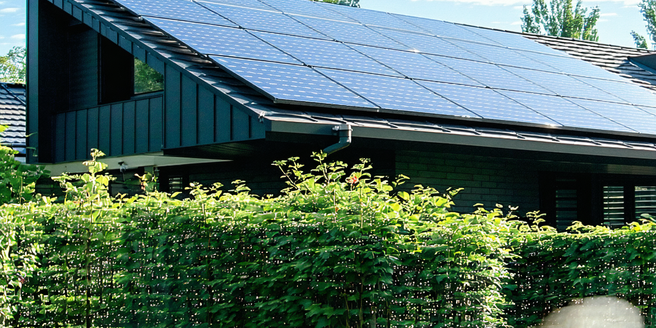Green Energy Solutions For Homes

Understanding Renewable Energy Sources for Homes
Renewable energy sources like solar, wind, hydro, and geothermal play a significant role in reducing carbon footprints. For homeowners, understanding these sources can lead to more informed decisions about energy solutions. Solar panels convert sunlight into electricity, while wind turbines harness wind energy. Geothermal systems use Earth’s consistent underground temperature for heating and cooling. These renewable options are crucial as the world shifts toward more sustainable energy practices. Furthermore, advancements in technology are making these systems more efficient and accessible. Additionally, hydro systems can be scaled down for residential use in some cases. By understanding the costs, benefits, and applicability of each energy source, homeowners can choose solutions that not only suit their energy needs but also contribute to environmental sustainability.
Benefits of Solar Power Systems
Solar power systems have become increasingly popular due to their multiple benefits. For homeowners, installing solar panels means generating clean, renewable energy which reduces electric bills significantly. Besides financial savings, solar power systems also decrease reliance on fossil fuels, contributing to a reduction in greenhouse gas emissions. In addition, many communities are offering incentives to encourage the adoption of solar energy solutions. This growing support from local authorities is helping to drive the transition towards more sustainable energy sources. The value of homes can also increase due to the presence of solar installations. Technological advancements and government incentives have made solar energy more accessible and affordable. By investing in solar power, homeowners pave the way for long-term sustainability and energy independence, while promoting a healthier planet.
Harnessing Wind Energy for Residential Use
Wind energy is a potent renewable resource that can be harnessed even at the residential level. Small wind turbines are designed for home use, converting wind into usable electricity with minimal impact on the environment. In addition to generating electricity, these systems can increase property values and provide a sense of energy independence. Homeowners with sufficient land and optimal wind conditions can benefit from reduced energy bills and less reliance on grid electricity. Wind energy systems are also often less expensive to install and maintain compared to traditional energy sources. Furthermore, governmental incentives can make wind power an even more attractive option. By harnessing wind energy, homeowners actively contribute to reducing national carbon emissions.
Implementing Geothermal Heating and Cooling
Geothermal heating and cooling systems offer an energy-efficient solution for residential climate control by leveraging the Earth’s stable underground temperature. This system consists of a heat pump and a network of underground pipes, known as the ground loop. In winter, it extracts thermal energy from the earth to warm the home, and during summer, it transfers heat from the house back into the ground. One of the key advantages of these systems is their minimal impact on the environment compared to traditional heating and cooling methods. Although the initial setup cost is higher than conventional systems, geothermal solutions significantly reduce energy bills over time, have low maintenance needs, and can last for decades. By implementing geothermal systems, homeowners can enjoy a sustainable and reliable energy source.
Exploring Energy Efficiency and Sustainability
Energy efficiency and sustainability are fundamental aspects of green energy solutions for homes. Improving home energy efficiency can drastically lower utility costs and reduce environmental impact. Simple measures, such as enhancing insulation, using LED lighting, and installing energy-efficient appliances, can yield significant savings. With the proper guidance, homeowners can make informed choices about the most effective measures for their specific needs. Moreover, adopting sustainable practices like water conservation and recycling can further enhance a home’s eco-friendliness. Renewable energy systems, coupled with energy-efficient practices, create a harmonious ecosystem where homes not only consume less energy but also contribute to the generation of green energy. Embracing these strategies enables homeowners to achieve long-term sustainability goals.